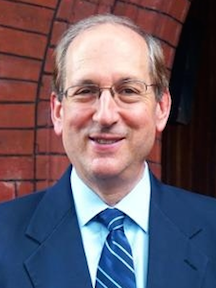Every three years, Phi Beta Kappa campus-based chapters and community-based alumni associations gather to chart the course of the Society, a tradition dating back to 1883. This past summer, we convened the 46th ΦBK Triennial Council, the first ever to be entirely virtual. We gathered to celebrate the fundamental role that liberal arts and sciences education plays in our society and our democracy. Our outgoing president, Lynn Pasquerella, and our incoming president, Peter Quimby, each articulated the foundational themes of ΦBK’s mission and ongoing work. Delegates approved three new chapters—Providence College, Rollins College, and the University of North Carolina at Charlotte—demonstrating the continuing geographic and institutional diversity of our chapters.
At the Triennial, I spoke of the ways in which we have deepened our engagement with the issues of our time, bringing ΦBK’s unique gravitas to support our partners in the higher education and cultural advocacy sectors as we grapple with a changing society. For example, this past academic year, we inducted more than 20,000 new members, an achievement accomplished only once in the past decade. This growth speaks to our success in articulating the importance and value of ΦBK membership. I also spoke about three challenges that will occupy us in the years ahead.
First, our nation is engaged in a reckoning with racial injustice unparalleled in the last half-century. As with any institution that traces its roots back to the earliest days of the American republic, ΦBK’s history with race is complex and challenging. We have our successes of which we can be proud, but we have our failings for which we must take responsibility. Most of all, we have committed ourselves anew to learning and growing, and to embracing a goal of inclusive excellence. Our ability to recognize the most accomplished liberal arts students in the nation depends on this inclusivity.
Second, respect for basic institutions of higher education, and especially liberal arts education, as opposed to “professional education,” is under assault. We will strongly advocate in our writing, speaking, and in programs locally and nationally for the value of a liberal arts education for students, lifelong learners, and their communities as essential to democracy. Moreover, we will continue to work with chapters on campuses where liberal arts education is threatened. I urge chapter leaders to reach out to us as these issues present themselves.
Finally, academic freedom is increasingly under assault. In a number of states, boards of regents, governors, or state legislators have involved themselves in issues at the heart of the curriculum. Our bedrock commitment to free inquiry on our campuses and in our society directs us to protect and preserve academic freedom. The goal of liberal education is to understand the world in all its complexities, to challenge us, and yes, to make us uncomfortable from time to time. As W.E.B. Du Bois (ΦΒΚ, Fisk University) taught us, to fail to do so is to transform “history into propaganda.” Here, too, we urge chapters to reach out to us when challenges to academic freedom arise on campus.
Thank you for all that you do to support the work of Phi Beta Kappa. It is no small thing for an institution founded nearly a quarter of a millennium ago to realize that our mission to champion education in the arts and sciences, foster freedom of thought, and recognize academic excellence has only become more central to our nation, and our world.
Frederick M. Lawrence
Secretary and CEO




